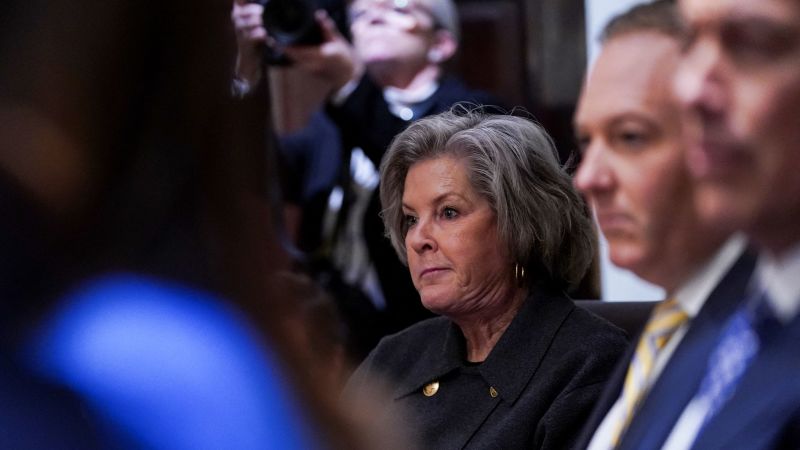The investigation into the impersonation of Susie Wiles, Chief of Staff to former President Donald Trump, is garnering significant attention as details emerge regarding how high-profile individuals were targeted. This inquiry marks a troubling instance in cybersecurity, reflecting the vulnerabilities that exist even at the highest levels of government. According to two sources familiar with the unfolding investigation, law enforcement is actively looking into reports of a deceitful party who managed to pose as Wiles, potentially jeopardizing sensitive communications with influential figures.
As reported by The Wall Street Journal, the impersonator allegedly reached out to senators, governors, and top U.S. business executives, claiming to be Wiles when making calls and sending text messages. Wiles is noted as a crucial advisor and a key liaison between Trump and various lawmakers. With a network of influential Republican contacts, her personal communication channels are vital for maintaining relationships with public officials.
A senior White House official expressed concern about the possibility of Wiles’ personal phone being hacked, raising suspicions that the impersonator obtained her contact list to selectively target prominent individuals. While numerous recipients of these messages expressed skepticism and hesitated to believe the impersonator was genuinely Wiles, such outreach prompted them to verify with the White House, thus bringing the impersonation to light.
Though specific names of those contacted remain undisclosed, the official confirmed that a mixture of major CEOs, governors, and members of Congress were among the targets. This alarming trend arises after the FBI previously cautioned about a surge in hackers utilizing advanced AI-generated voice technology to impersonate senior government officials, thereby gaining unauthorized access to sensitive accounts. The FBI warned that such impersonations represent a significant threat, as they could lead to further cyber intrusions involving other officials and their associates.
In a statement given to CNN, a White House official reiterated the seriousness with which the administration regards cybersecurity, particularly for its staff members. They confirmed that the matter is under thorough investigation, emphasizing the potential risks associated with such impersonation cases. Meanwhile, Wiles has refrained from commenting publicly through her representative, maintaining a low profile amid the scrutiny.
Noteworthy is that Wiles holds the distinction of being the first woman to serve in the role of chief of staff. With a robust political background, she hails from Florida and has long been viewed as one of Trump’s trusted advisors, having previously served as his campaign manager for the 2024 election cycle. While stepping into the role in the West Wing, Wiles reportedly had reservations that included stipulations regarding her control over access to the president, indicating her desire to fortify security against unauthorized communication.
Wiles is recognized for orchestrating Trump’s most effective campaign strategies, displaying an apt ability to maneuver political landscapes while maintaining discipline among various factions within the campaign. This effectiveness was pivotal in securing victories in Florida, both in the 2016 and 2020 presidential elections. Furthermore, after losing the 2020 election, Wiles is credited with serving as Trump’s de facto chief of staff during his post-presidential period, maintaining continuity and operational control during a turbulent transition.
Adding another layer to her political journey, Wiles once played a key advisory role for Florida Governor Ron DeSantis but experienced a fallout in their professional relationship in 2019 due to increasing tensions. This history complements a complex portrait of Wiles as a seasoned operative, committed to her role in the political arena while navigating the challenges that come with high-level government engagements. The ongoing investigation into the impersonation case emphasizes the growing risks posed by digital threats in political communications, highlighting the necessity for heightened vigilance and robust cybersecurity measures within such sensitive spheres.



